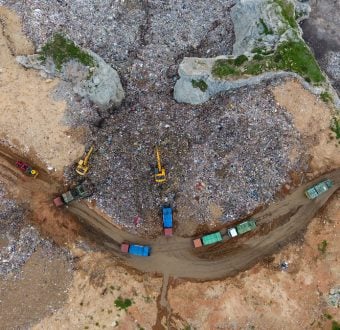Latine people and other communities of color are the most impacted by the climate crisis. Forced migration as climate refugees, surviving extreme weather and wildfires, and exposure to toxic pollutants in sacrificial zones near our homes, are often part of our story. We know that generally communities in the Global South have a lower carbon footprint yet are most affected by the climate crisis. Similar discrepancies exist within the U.S. because of racist structures of oppression.
Our communities are denied access to adequate healthcare, education, and housing. Yet the whiteness of traditional environmentalism often doesn’t include us and the richness of our traditions, radical thoughts, and solutions for a mundo verde.
We’ve always known that the climate emergency is not just about the environment. It is a human rights crisis, shrouded in colonial, racist, and profit driven systems of oppression. To have a thriving planet we all can live on, we have to dismantle all these systems of oppression as well. We cannot have climate justice without racial justice.
Latinx people play an integral part in the environmental movement, and it’s about time our experiences are brought to the forefront. Over 70% of Latinx people in the United States are concerned about the environment. So here we are! We are a part of the story.
We came to Greenpeace from many different places, with the hope of making the movement stronger, more inclusive, and more resilient. We are here to fight against environmental racism and for environmental justice, to decolonize environmentalism, and uncouple it from western traditions.
*A note on using Latinx/Latine:
Because Spanish is a gendered language, we think it is really important to be gender inclusive when we speak about our communities. The goal of not using a/o endings is to be gender inclusive. Different Latin American countries, and Latine populations in the US do it in different ways. We even have a whole Planeta G episode on this, if you want to explore further. Our solution is to use all the different ways to ensure that people feel included in the conversation! We often use what some folks call “triptico” to be extra clear– this means using the a, o, and e (or x ending) like we did here for example.
Additionally, none of these terms (Latino, Latine, Hispanic, etc) properly account for the many Indigenous Peoples of the Americas who don’t identify with colonizing terminology. Latin America has over 800 different Indigenous groups, with profound cultural identities, despite centuries of colonization, violence, discrimination, and forced assimilation.
Lastly, let us remember that for some people the only connection to Spain was on the flag of the ships that stole them. And while boundaries between what we are (Indigenous, Black, white, European, African etc) are not clean borders, the privileges and power dynamics based on how we look (and how close to the European standard we appear) are real. While “Latinidad” (the common Latinx identity we share) is many positive things that can unite us, it is not a reason to hide away the damage of continued racist structures, cultural erasure, and colonizer ideology.
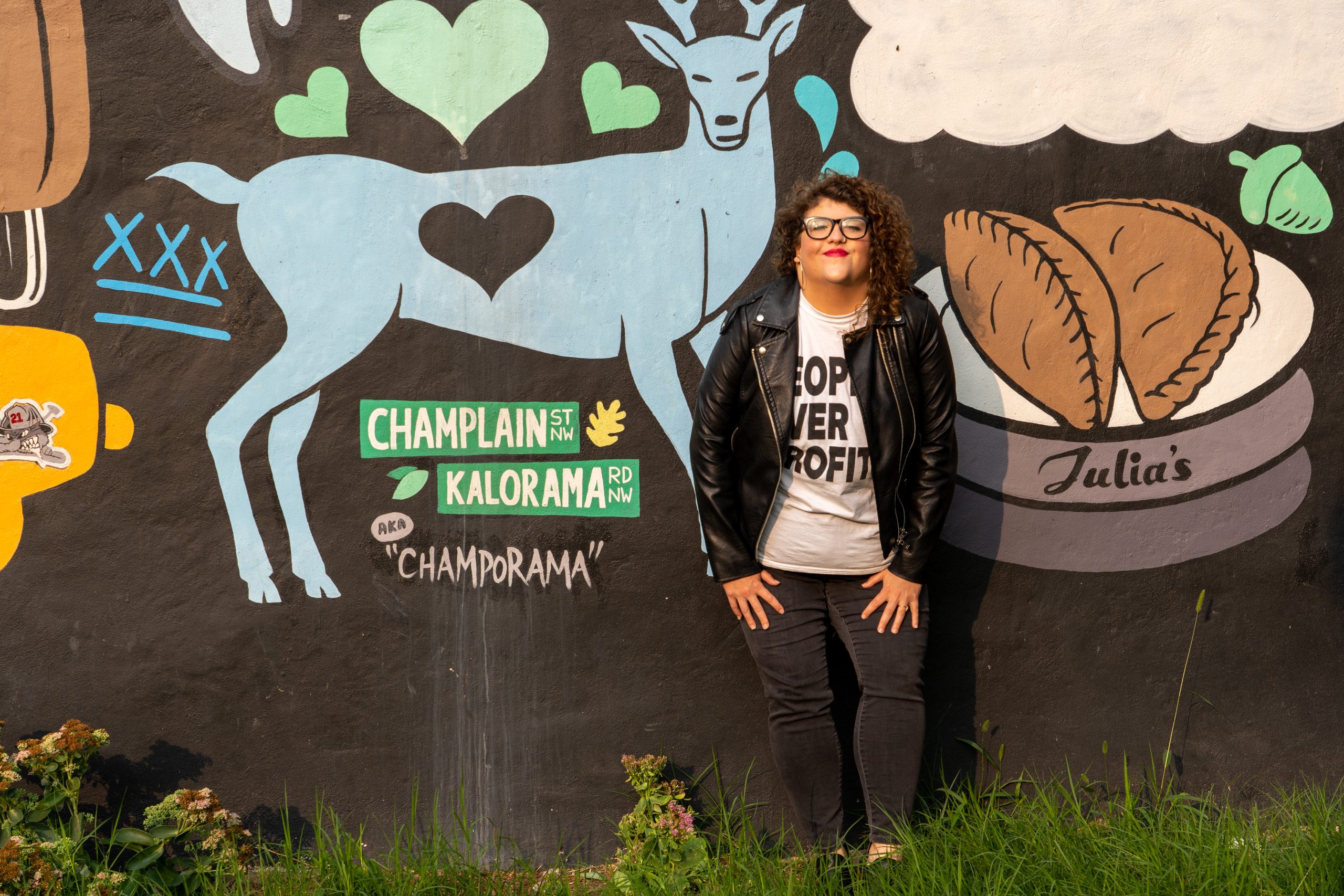
Name: Valentina Stackl
What’s your background: Chilean/Jewish/Austrian, the daughter of a political exilee, and American immigrant
What do you do at Greenpeace: Senior Communications Specialist for our Democracy work, host of Planeta G, Greenpeace USA’s Latine environmentalism show (haven’t seen it? Check out this episode in which we make vegan empanadas).
Why do you do this work: There is no fight more critical than ensuring that we can all be free, and have a thriving planet to call home.
Favorite Latinx environmentalists to follow: Nalleli Cobo, all around extraordinary activist, Goldman Prize Winner and recently recognized on the Times 100 (watch her here on Planeta G).
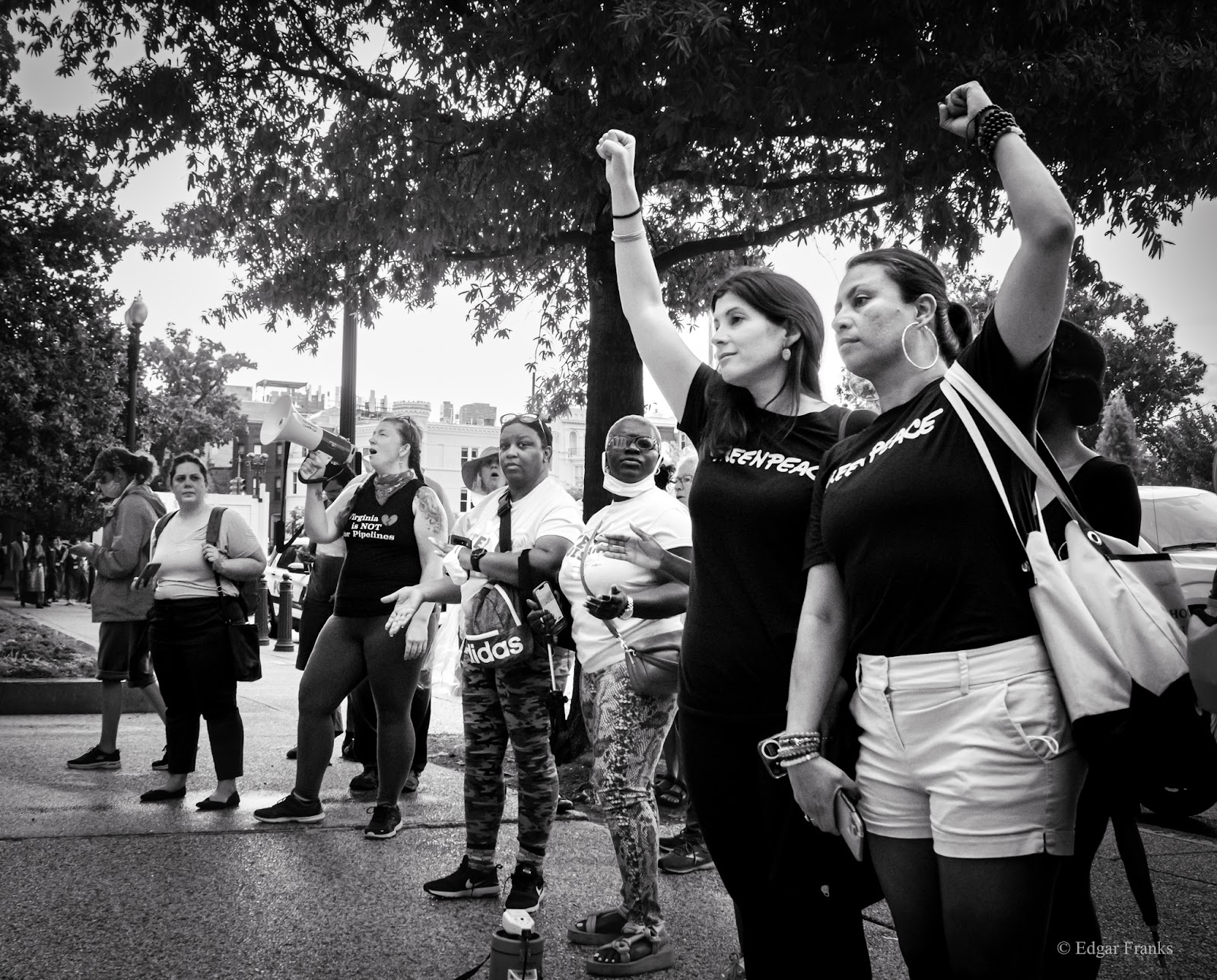
Name: Rocio Estrada
What’s your background: From Guatemala! Orgullo Chapin!
What do you do at Greenpeace: Senior Communications Specialist, Executive Support
Why do you do this work: Being born in Guatemala gave me perspective on many things, but one of the most crucial was the legacy I will one day leave behind. I strongly believe the universe gives you what you put into it, and I want to use all of my energy to leave my kids a better Earth than the one they came into.
Favorite Latinx environmentalists to follow: Rodrigo Tot, Guatemalan farmer and land rights activist.
Favorite Artist: Romeo Santos babyyyyyyyyyyyyyyyy!
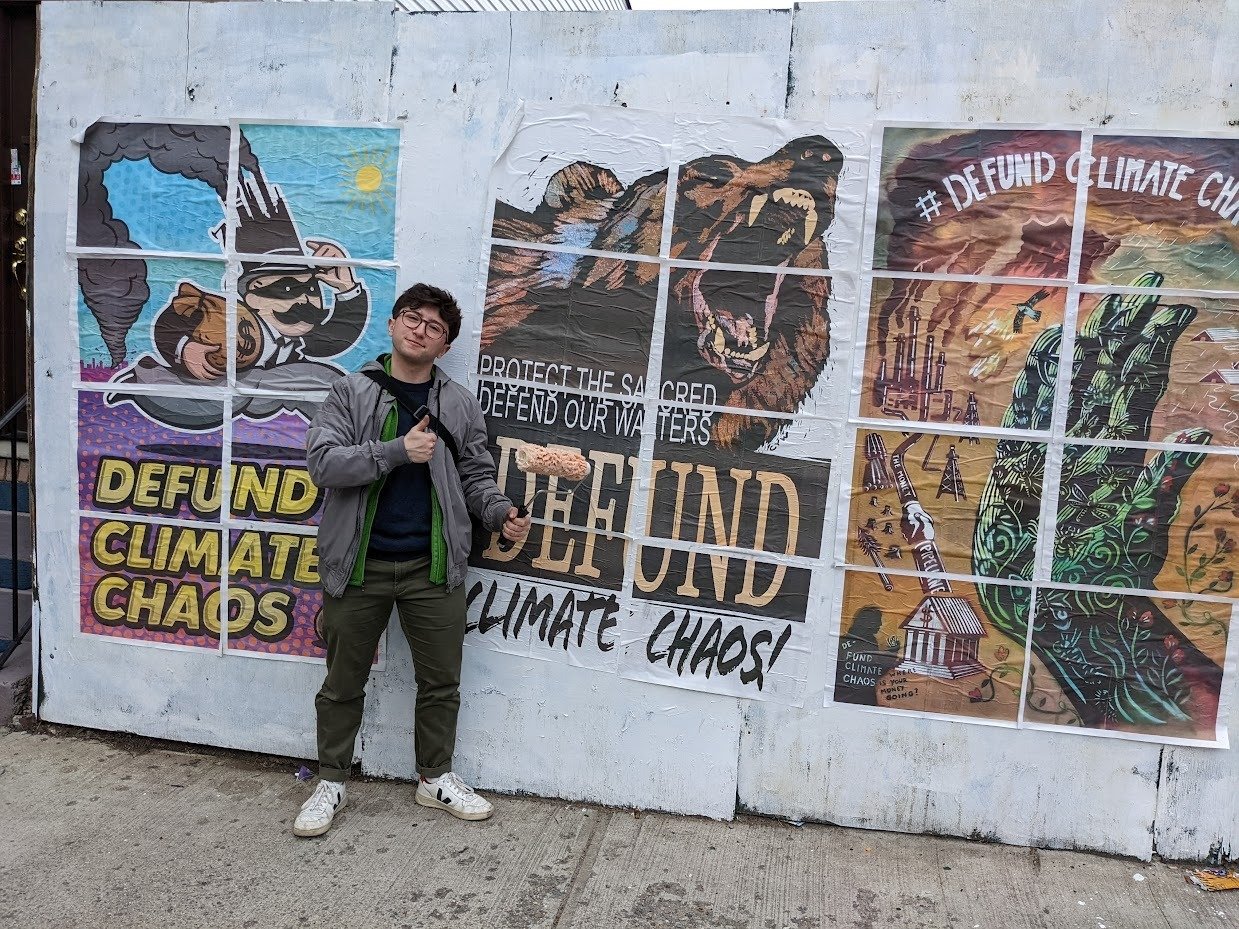
Name: Seth Antonio Laxman
What’s your background: Cuban
What do you do at Greenpeace: Climate Campaigner
Why do you do this work: Why is anyone doing anything besides everything they can to save people and the planet? I am fascinated by how the world works and in particular find the intersectional issues that have resulted in the global climate crisis to be so compelling. I love how this work allows me to connect with people from all over the world and all different kinds of backgrounds.
Favorite Latinx environmentalists to follow: Yessenia Funes, Cesar O. Estien , Latino Outdoors, and Queer Brown Vegan.
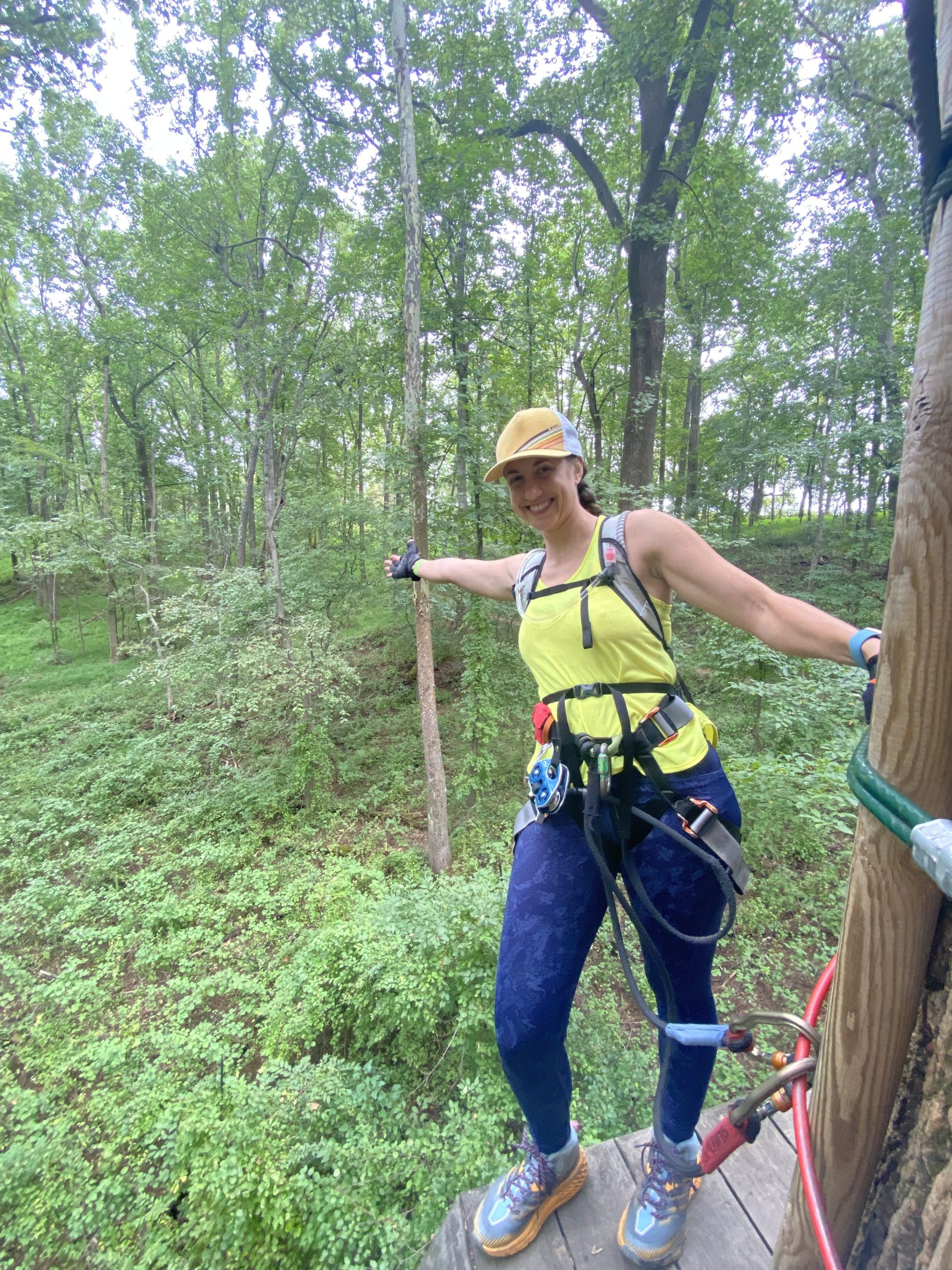
Name: Rebecca Pons
What’s your background: Cuban and Italian
What do you do at Greenpeace: Senior Program Operations Manager
Why do you do this work: Fredrick Douglass was right: “Power concedes nothing without a demand. It never has and it never will.” If we, all of us of different backgrounds, don’t demand that corporations and governments be held accountable for the creation of the systems that are destroying the planet and ignoring the rights of people and other living beings to clean air, water, and to their ancestral land, then we won’t be able to realize a liveable planet, with just systems for all of us in the future.
Favorite Latinx environmentalists to follow: My amazing colleagues in this list.
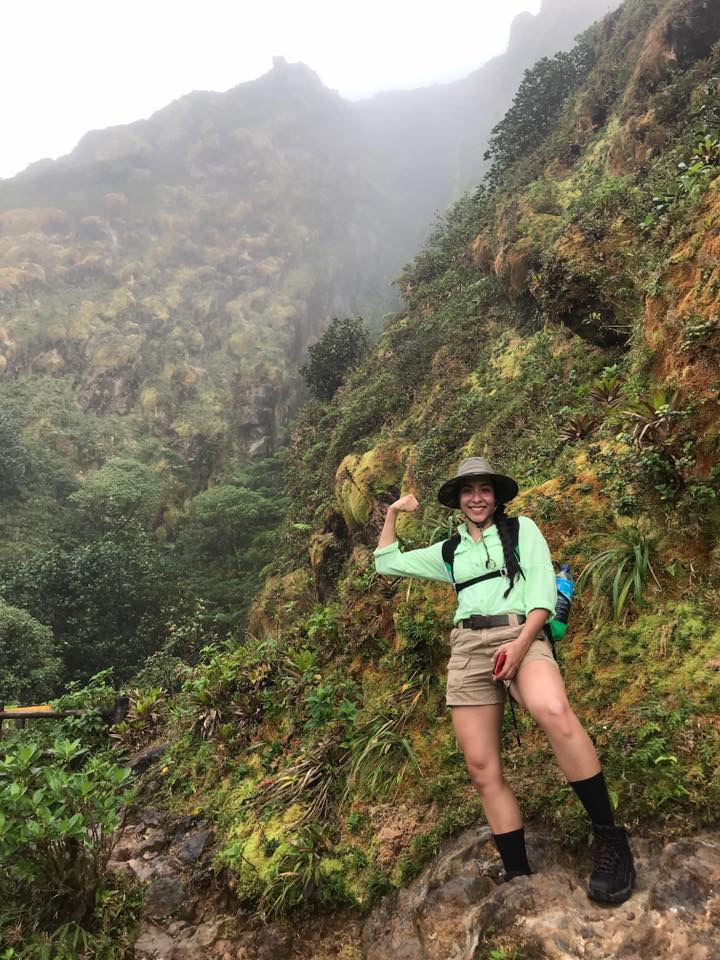
Name: Andrea Gutierrez
What’s your background: Mexico
What do you do at Greenpeace: Distributed Organizer
Why do you do this work: Throughout college, I was always the only brown girl in environmental classes. When I try to talk to the brown folks around me about climate change, social justice, democracy, etc. many are not fully aware of these issues. If we are going to bring transformational change on Earth, we NEED brown faces in these spaces. I do this work for my elders, my siblings, and for our future generations. May we keep making our ancestors proud, and may we continue to stand our ground.
Favorite Latinx environmentalists to follow: Wild Lobo aka Elise Lopez on IG (artist, silversmith, activist), Cindy Villaseñor on IG (digital creator on camping/outdoor, gardening, garden educator).
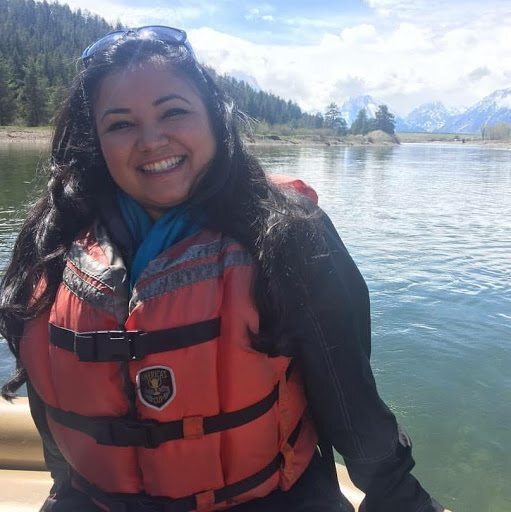
Name: Linda Rodríguez
What’s your background: El Salvador
What do you do at Greenpeace: Oceans Plastics Campaigner
Why do you do this work: I believe that by bringing justice and equity on environmental and social justice issues we will have a safe and sustainable planet. Also, I love whales.
Favorite Latinx environmentalists to follow: Yvette Arellano, EYECJ, and the Rio Grande International Study Center.
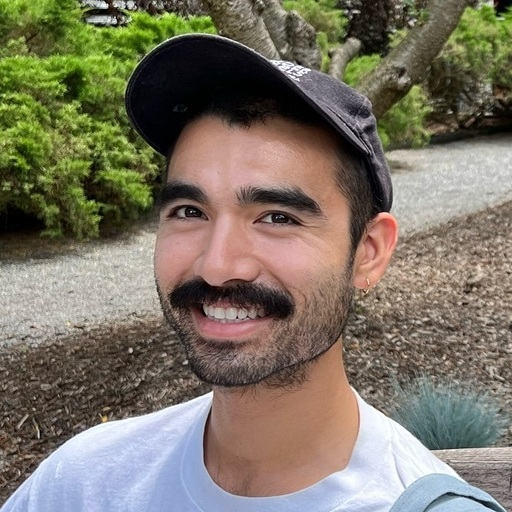
Name: Andres Chang
What’s your background: Peruvian-Chinese-Jewish-American
What do you do at Greenpeace: Senior Research Specialist
Why do you do this work: We’re fighting for a world where communities of all kinds can thrive. I’m hopeful we can get there by building cross-cultural, internationalist movements, challenging deep-seated inequalities, and enacting pro-worker, pro-environment policies like we’ve never seen before.
Favorite Latinx environmentalists to follow: Celia Vasquez Yui, who is an artist, Indigenous rights activist, and political representative of the Shipibo-Conibo people of Peru, and others via the Shipibo Conibo Center.
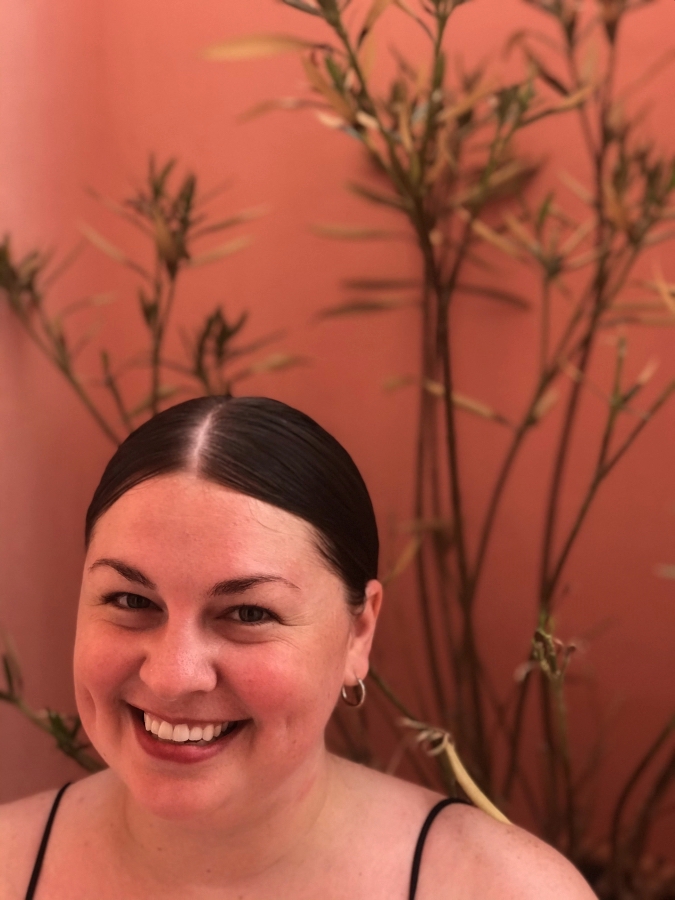
Name: Carson Chavana
What’s your background: Mexican-American and European-American
What do you do at Greenpeace: Distributed Organizing Specialist
Why do you do this work: I am here to be a steward of the land, to be in deep and true community with those around me, to heal my family lineage, to honor my ancestors, to embody the values of the world we want for future generations, and to be an active participant in the movement for collective liberation. I am organizing to shift the power balance to center those most directly affected by the harmful consequences of current dehumanizing systems and to co-create a world where we treat every life as sacred.
Favorite Latinx environmentalists to follow: My friends and organizers from my hometown of Austin who inspire me: Drew, Shavone, Myles, Dave, Pete, Susana, Greg, Daniela, Erica, and my dad, Ricardo, who is a fierce advocate for the Latinx community in Texas.
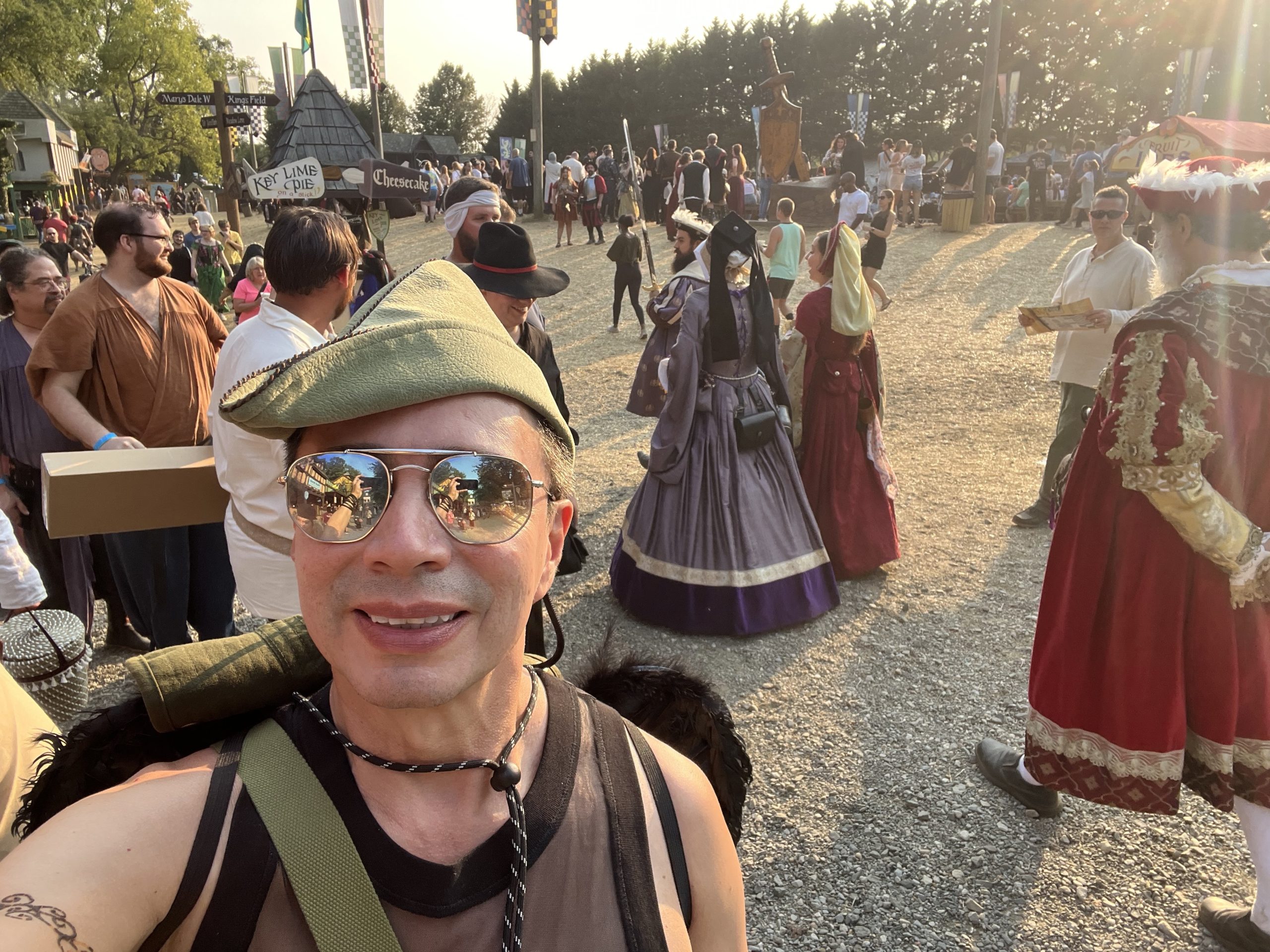
Name: Mauricio/Mauro/Mau Franco
What’s your background: Colombian
What do you do at Greenpeace: Admin Operations Manager
Why do you do this work: I want to contribute with my experience, mi animo, mi berraquera, and also be part of using resources to impact social change for a world with less segregation, more equality, and a healthier and greener world for everyone and the future.
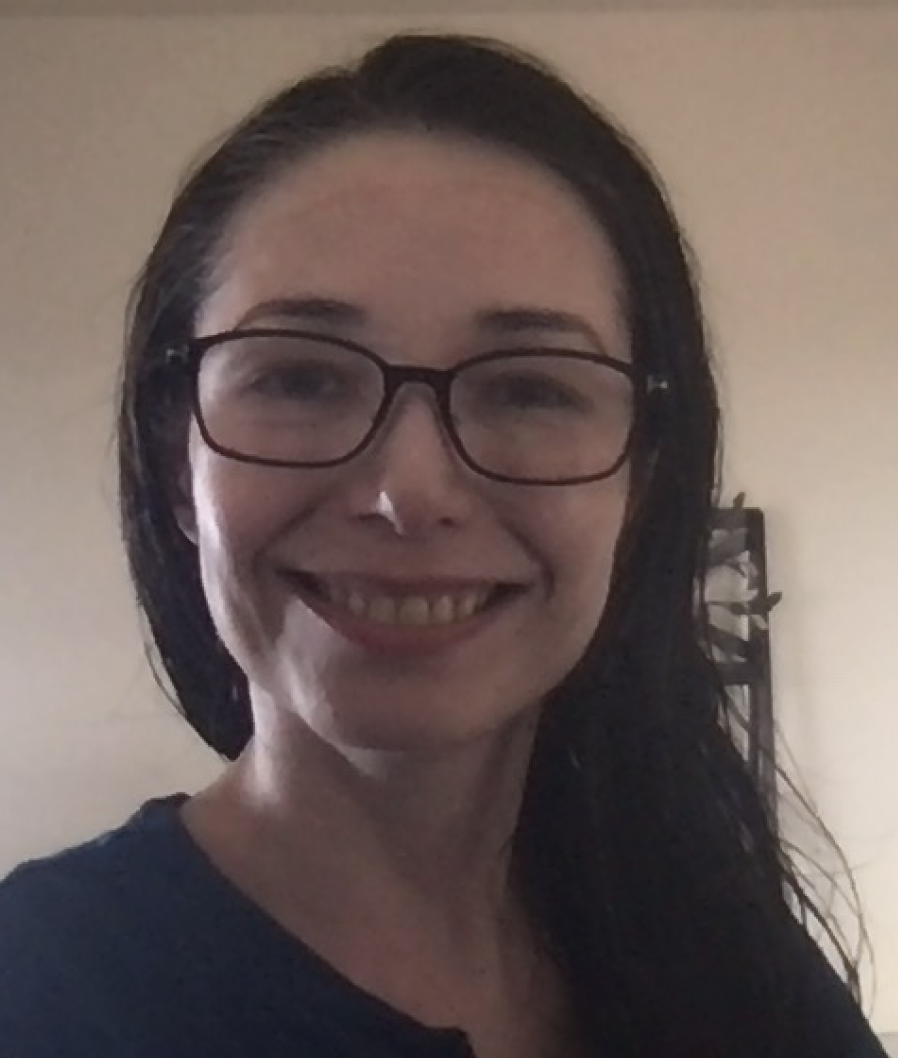
Name: Claudia Donoso
What’s your background: Chile
What do you do at Greenpeace: Marketing Analytics and Budget Manager
Why do you do this work: I want to contribute to the people power movement through fundraising that empowers ‘regular’ people to be part of the solution and trigger change.


